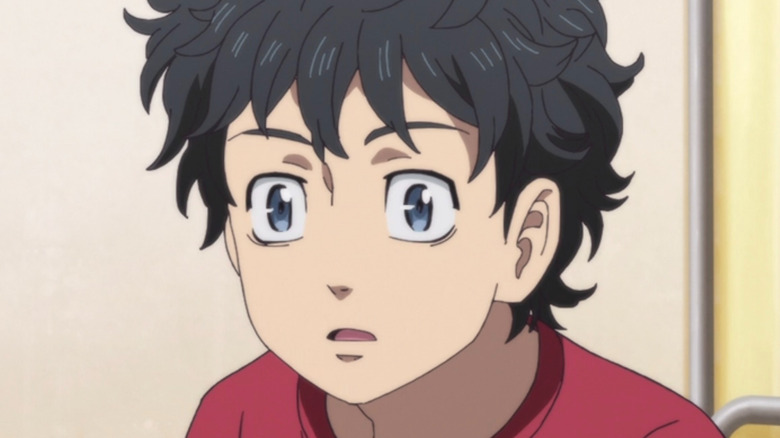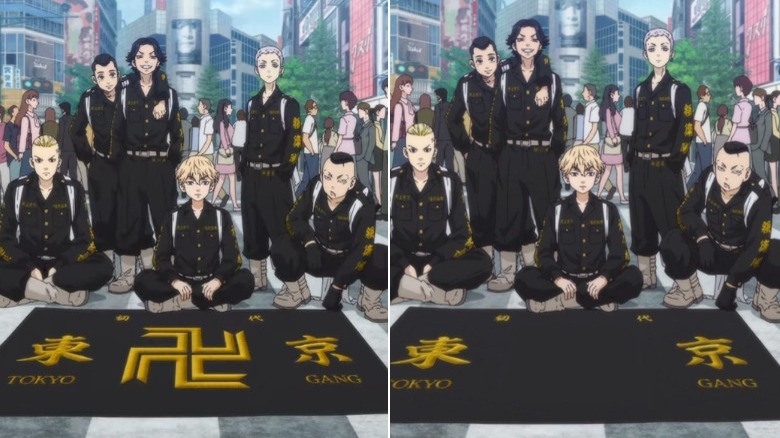Why A Buddhist Symbol In Tokyo Revengers Was Censored On Crunchyroll
"Tokyo Revengers" asks the question of what you might do if you had the chance to take a second crack at your teenage years. The series follows an unremarkable salary man named Takemichi Hanagaki (Yuuki Shin/AJ Beckles) who finds out that his middle school girlfriend, Hinata Tachibana (Azumi Waki/Lizzie Freeman), has been murdered. As Takemichi finds himself waking up at the age of 14 again after a fatal accident, he has the chance to try and make a better life while hopefully saving Hinata from her future fate.
Based on the manga of the same name by Ken Wakui, the wistful chance at a second youth is a slice-of-life premise that almost any viewer can relate to. Meanwhile, the backdrop of rival gangs at Japanese schools keeps things exciting enough to maintain the interest of more action-oriented viewers. While "Tokyo Revengers" isn't afraid to get rough from time to time, there was one symbol in the original airing of the series that was subsequently cut out for American audiences.
The symbol looked similar to a swastika
Fans were quick to notice a change to "Tokyo Revengers" when the episodes of the series first started appearing on services like popular anime streamer Crunchyroll (via CBR). Evidently, a symbol heavily featured on the clothing of the Tokyo Manji Gang, which is central to the plot of the series, has been removed in other regions. While many accused Crunchyroll of making the changes themselves, a tweet from the company's French account clarified that they are not even allowed to make such changes, suggesting that the symbol, which resembles a swastika, had been edited out by the studio or distributor behind "Tokyo Revengers" before it came to them.
The symbol, called a manji, is known to Buddhists and other groups all over Asia — many of whom push back on censorship of it, noting that it's been around for thousands of years (via BBC). However, audiences who are less familiar with the symbol can certainly be forgiven for confusing the manji with a swastika, especially considering the only main difference between the two is the alignment of the shape.
Of course, this isn't the first instance of such changes being made to Japanese releases to avoid controversy. The all-time classic N64 game "The Legend of Zelda: Ocarina of Time" had changes made to music and symbols in later releases to avoid offending religious groups. Still, that hasn't stopped fans from debating whether such changes are actually necessary, as has been the case with the changes to the symbol from "Tokyo Revengers."

